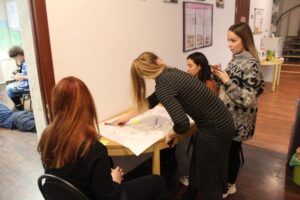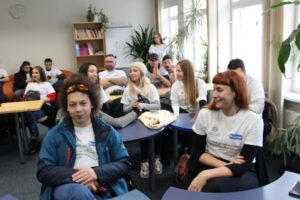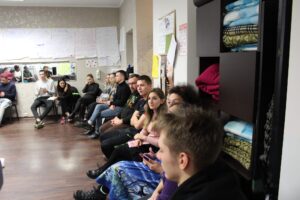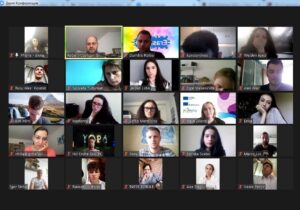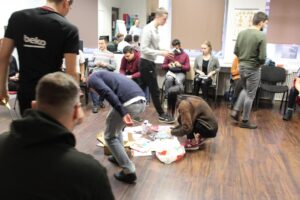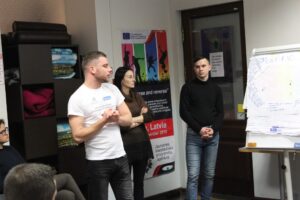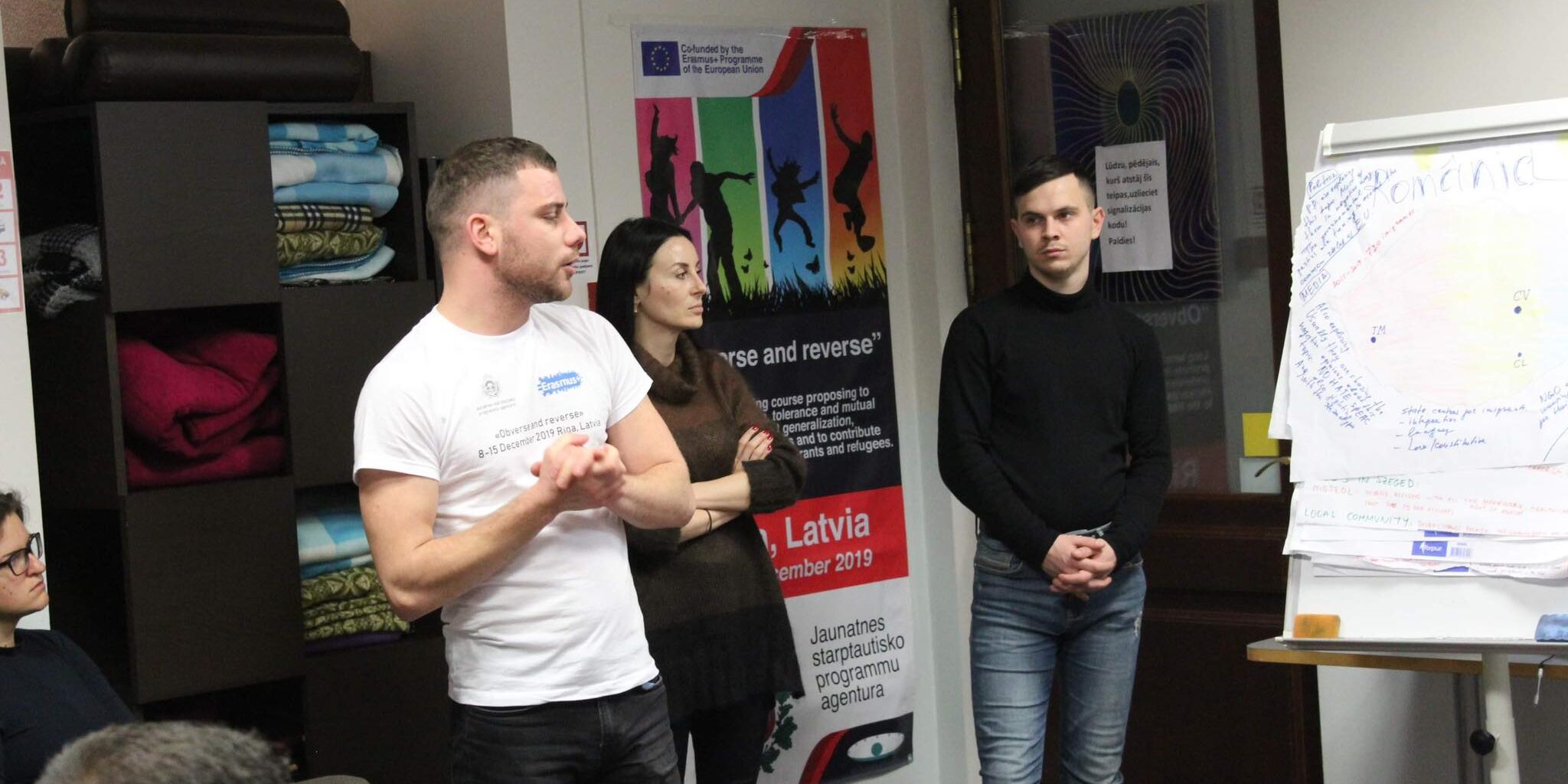A long Erasmus+ project ended for us! The project was implemented by Youth Association BIID and the consortium of NGO-s from 9 European countries, including Greece.
“Obverse and reverse” is a Long term training course proposing to promote inclusion, tolerance and mutual understanding/fight generalization, racism and stereotypes and to contribute to the integration of migrants and refugees.
The first part was implemented in Riga, Latvia, in the period of 8-14 December 2019, and send one was planned to be implemented in Romania, in March 2020, but because of Pandemia of the new Corona Virus, it was implemented online, via zoom in the period of 18-29 may 2021.
The overall aim of this project was to develop and promote a new positive narrative of inclusion through creative and innovative youth work activities. To train youth workers and youth leaders giving the chance to young Europeans and young refugees and migrants to meet and share and explore their stories in order to match them with the needs of the communities they live in.
Objectives of the project were:
• To analyze the migrants’ background, the migration flows and reasons behind it;
• To contribute to migrants and refugees integration;
• To promote inclusion, tolerance and mutual understanding / fight generalization, racism and
• stereotypes;
• To promote a change of perception towards migration and refugees;
• To raise awareness on the feelings, hopes, needs, fears, dreams, expectations, competencies and skills of migrants/refugees and on their positive contribution to local communities;
• To develop 10 strategies to match community needs and migrants’ stories.
These objectives have been reached by implementing two different and subsequent training courses and connecting them with some local activities that each partner already committed to implementing at the local level (between the two activities and as a follow up after the second training). As result, we realized a final publication in which thoughts, reflections stories of migrations developed as “modern fairy-tales”, which will be presented additionally. The publication promotes the concept of “community match”, defined as the opportunity to match the stories, skills and knowledge of the migrants with the needs and opportunities of the community they live in.
The methodology of the training course:
Generally, the working methods have been rather non-formal and participative. Methods used e.g. individual work, pair work, organisational work, mixed group work, field activity, light theatre method, theatre of oppressed, Dixit card exercise, montages, interviews, statutes, debate, aquarium discussion, etc. E-booklet on youth work goes intercultural for public use.
In totally, 82 participants was involved in these 2 international events, representing the next countries: Latvia, Estonia, Lithuania, Greece, Malta, Italy, United Kingdom, Romania, Hungary.
